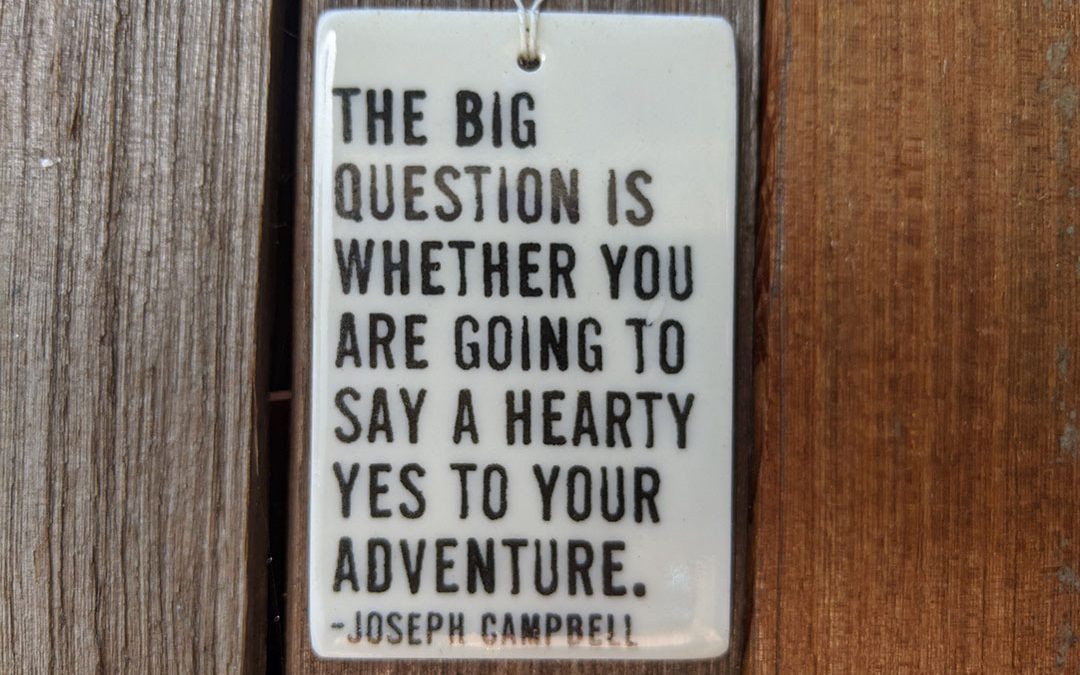I blog and talk a lot about the different techniques by which we manifest or create reality. I teach that we are creators of consciousness. In these blogs and talks, I have skirted the deeper question: “What is consciousness?” It’s a big question, and to answer it is a tall order. At its core, consciousness requires you as the observer. You express yourself through your physicality; that physicality is created from your consciousness, which results in feelings, thoughts, reactions, and actions. This blog is about consciousness, what it is, and how this process of understanding can help you manifest more of what you want to see in your life.
We all have the ability to change our life and shift into a reality that mirrors back to us what we want, visualize, and imagine. Central to these teachings and laws is something deeper that must be recognized – consciousness. I cannot recall anyone asking me: “what is consciousness?”, “what is thought?”, “why do we think?”, or “what animates us?” I wonder whether this is because people are unsure how to merge science with their spiritual questions. When I teach, I believe that it is essential to explain that science and the mystical are one. They are inseparable because to have a foundation with which to build upon you must blend the two. Science without the mystical/spirit is logic, and the mystical without the foundational building blocks of science is folly.
Deliberate Consciousness
To understand consciousness, we need to make a radical shift in our perspective and perceptions. Mystics call this awareness or awakening. We must realize that we are thinking in every moment and become very aware of our existence and energies, both gross and subtle. There is an elegant solution found in the synthesis of the spiritual and the scientific that can help explain the relationship between consciousness, spirituality, and the physical world. If you can understand that you are the thinker creating this reality and that you are energy, that everything is energy, that you are a spiritual being living in a physical body, you will awaken.
Consciousness is the state of being aware or of being aware of the external reality, objects or “something” within oneself. Becoming sensitive to our own consciousness liberates us from a humdrum life. Every morning, for most people, when you wake up, you immediately perform the same routines without even thinking about what you’re doing. You do your “thing” like a machine. The subconscious mind takes over, and it performs all of your duties perfectly, but you remain in a sleep-like state.
What would happen if, when you woke up in the morning, you actually stopped for a moment and thought about what you were going to do? For example, you say to yourself: “I am going to make the coffee consciously.” As you make your morning coffee, you become aware of every fine detail in the act of making coffee. Paying attention to what you see, smell, taste, hear and feel. This is the beginning of awareness. (With the 5 senses) When you are simply repeating the same actions, you are much like an automaton. When we’re in the subconscious grind of the “awake-asleep” state we miss things about life, the fresh and new things that keep life interesting and exciting. The things that bring with them new opportunities. Do you ever feel like you are tired of doing the same things over and over again? If so, take a moment to look at things differently and notice the details around you using all of your senses. Let your consciousness reach out to places that you cannot see with your physical eyes. (The 6th Sense) Explore these things, and you will be quite amazed that much of what you see with your inner eye is accurate. Your inner eyes are the eyes that create the canvas of your reality. What you think about, feel, and say creates your outer world. This is the mystical at work. Go within and paint the sky!
Neuroscience has made great strides in establishing the correlation between the brain and how it processes information and creates consciousness. Science has allowed us to understand better how our minds work through neuroplasticity, neural networks, the subconscious mind, the conscious mind, brain wave states and more. The question that has haunted me since the day I can remember thinking was: “Why do we have conscious experience? Why consciousness?” And I wondered, without consciousness do we exist and are we real? I didn’t gain a lot of support from friends with this thinking, and I received many blank stares in response to my questions. I learned at an early age that asking questions about our very existence usually resulted in an adult or someone my age retorting, “Who cares! It just is.” Well, I cared, and I still do. I think it’s careless to think that life just is, especially since we are responsible for creating our reality. I am fascinated by consciousness and this alleged reality.
The problem that I have found with research that focuses only on the physical brain and its processes is that it is only a fraction of an attempt to explain consciousness. Science investigates the brain’s experience in the hope that it can explain why consciousness exists. But what about YOU, the spiritual, unseen world of consciousness that exists as energy and vibration? We each process things in a similar manner, but we can’t know if our experiences are identical. For example, we may agree that something is yellow, but the variant shade you see may not be the yellow that I see. Your perception of yellow may not be what I perceive as yellow. Our experiences are uniquely individual. In cooperative discussion of our individual realities, we can perceive different ideas of the same thing.
Relationship and Disposition
In the physical realm, our observant consciousness is, by its very nature, relational and dispositional. This means that your physical reality is lodged within the way that it relates to something else or has the same disposition of (tendency or behavior of) something else. In other words, everything has a relationship to everything else and defines reality. We measure and compare things to define them.
In this physical, conscious realm, everything is affected by everything else. I tell clients – be aware of your environment and who you keep company with. This is because energy jumps and its effects upon you can be positive or negative (its also a mirror of your inner world, but we will save that discussion for another time). The physical world is energy and vibration, and our brain describes an experience to us based on the way that we perceive, the way that something affects us, or the observation of that thing. But the conscious experience has so much more going on than just what you observe and what you think you see.
You do not just have an experience – you are the experience; you create the experience based on your conscious existence. We do this by accessing subconscious memories and experiences, relating what we believe we perceive by giving it “meaning.” The problem is that what you feel and perceive may not be happening at all. It may simply be an emotional past experience that is now a memory. This means that rather than having a new experience, you are simply repeating patterns that you believe to be real. You are living in the past based on your programming from your youth. As we head farther down this rabbit hole, you must grasp that you can look at a situation differently by simply choosing to see it differently and that will shift what you see as well as the outcome.
In college, my psychology professor asked me, “what does it feel like to be conscious?” I could not wrap my head around his question. I told him that I felt that consciousness is all there is and that somehow we both project this reality and experience it. He replied, “for all you know you could be a brain sitting in a vat somewhere having this experience.” That warped my mind even more and did not progress us toward defining consciousness. He then asked me to explain my assertion that I felt that humans have a destination. I answered him by explaining that the destination is: “to understand,” but this is because I wanted an answer to the question: “why consciousness?” Not everyone asks such a question, nor do they seek an answer for the meaning of life. For many, there is no meaning, life just is. But life is what we choose to make it.
The Hard Problem
The gap between what the brain does and what consciousness creates is commonly referred to as the “hard problem” of consciousness. Philosopher David Chalmers said the core issue is that no physical property or set of properties can explain what it’s like to be conscious.
The golden key to solving Chalmers’ “hard problem” is understanding that consciousness is absolutely needed to explain the physical world. The physical world cannot explain consciousness, and without consciousness, or an observer, does the physical world even exist? If the physical world only defines things in terms of relationship and disposition, then you are not defining anything at all, you’re measuring. We do not know what physical things are, in and of themselves. We know that they are made of particles, atoms and molecules and that they have properties that interact, create, dissolve, destroy (recreate) and so on, but ultimately these properties are defined only because we are conscious of them. If, however, we cannot relate one thing to another, then we cannot define reality. Therefore through our conscious awareness, we define reality.
Consciousness Gives Things a Value
This is where consciousness is very interesting. If we can uncover a new “relationship and disposition,” we then become conscious of this new physical relationship or property. We can then safely postulate that through thought, intention, and inquiry we discover. What we discover we are also creating and, I suspect that this “something” already existed, but we simply brought it into focus in our reality. Would not everything we want and need be at our fingertips if we only applied our consciousness to it? It is my hope that you can see that we are creators or co-creators through consciousness. The universe has to have “something” to give meaning to relationship or disposition. In our universe, that something is our consciousness.
Science carefully measures, defines and catalogues physical reality to understand the effects that physical reality creates. But without consciousness there, nothing is created. Without considering us in the equation, the conscious observer, who derives and gives meaning to this physical world, what effects are there? We give meaning to the way the behavior of particles interact because of the way in which these particles affect the conscious observation humans give them. We believe that reality affects the observer, but without the observer, present to have an effect on, would there be any effect? You must have a conscious observer to have cause and effect. Therefore, we are both cause and effect – because we are conscious. Many Quantum physicists believe that consciousness is what operates this physical world.
It is only through consciousness that the physical world can be understood. Immanuel Kant recognized that consciousness is not located inside of space and time; rather, it is space and time that are themselves part of consciousness.
Einstein wisely observed that: “Science without religion is lame, religion without science is blind.” Our having gotten this basic metaphysical relationship the wrong way around could be at the root of many of our frustrations in understanding, not only the relationship between consciousness and the physical world, but also the nature of consciousness itself. Recognizing the spiritual or mystical and metaphysical nature of consciousness could answer some of our most pressing questions – but we must think outside of the box. Using a blend of science, metaphysics, spirituality, existentialism, and psychology to explore ourselves will help us to understand that this world reflects back to us our very consciousness. This is a powerful tool in helping us to empower ourselves through awakening.




